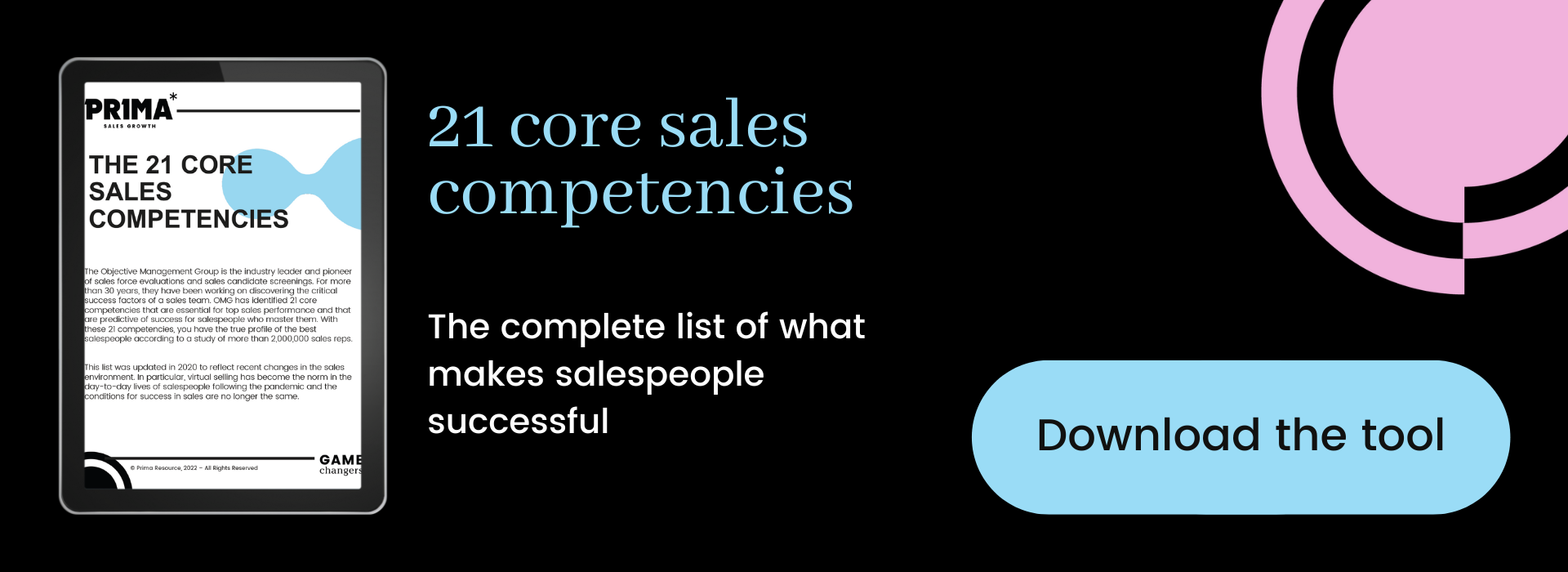 Has this ever happened to you?
Has this ever happened to you?
You’ve worked hard to understand a prospect’s needs and dedicated a lot of time answering their questions. You’ve done everything in your power for them to do business with you, and the prospect has given you every reason to believe that they’re satisfied with your services.
But you just can’t seem to get their signature to sign off on the deal.
You call the prospect back, you follow-up… but they’ve disappeared.
Sounds familiar?
I’m sure you experienced this more than once.
But do you understand why the sale never happened?
We know that people “buy” the salesperson before they buy their products or services and sometimes, a prospect will say that they didn’t appreciate the representative’s style.
When that happens, a sales representatives should ask themselves “The prospect didn’t like me, but why?”
The truth is a generic word like “style” covers many things that aren’t so much about the representative’s personality as they’re about their sales posture.
Here are 10 reasons why your prospects don’t to buy.
1. Value
Even if you dedicated a lot of time to your prospect, the interactions they had with you didn’t mean enough to them. They see you more as a supplier or salesperson than as a trusted advisor.
Possible Causes
- You limited your conversation to the client’s needs, details about your solution, and the cost.
- You failed to ask questions the prospect didn’t have answers to.
- You moved forward too quickly with your offer, demonstration, or bid.
2. Resistance
Resistance is often present in sales. It’s not always possible to detect because of its passiveness or subtleness, but keep its presence in mind. Even when it is recognized, resistance isn’t constantly addressed. It’s one of the mistakes that most often cost a sale.
Possible Causes
- Your prospect is afraid of making a wrong decision.
- You don’t recognize their resistance and let it set in.
- You notice their resistance but think it will go away.
3. Expectations
The prospects you meet will have expectations only they know of and will expect you to respond without expressing them. If you aren’t aware of them and you don’t ask questions, a wedge will form between what the client demands of you and what you’ll be giving them.
Usually, these expectations relate to your company’s capabilities, your products or services, your first meeting, and the business relationship which may follow.
Possible Consequences
- Your prospects feel they’re not being heard or understood.
- You don’t understand the prospect’s situation and go off-topic.
4. Listening skills
Lousy listening skills can also lengthen your sales process.
Possible Causes
- You think you’re in control of the discussion when you’re talking (asking questions is the only way to control a conversation).
- You pay attention to your inner voice instead of listening to your prospect, and you miss important pieces of the message.
5. Your Relationship
For a prospect to consider doing business with you, you need to develop a strong relationship. You build his connection through real interactions as opposed to superficial conversations. When people share values, a relationship can grow when you dedicate enough time to it.
If your relationship with a prospect isn’t well-established, they won’t want to move forward. However, if a potential client has a well-established relationship with a competitor’s representative, it doesn’t mean that you can’t also build a healthy relationship with them.
6. You’re Too Accommodating
In sales, you need to balance meeting the client’s needs with putting yourself in a position to earn their respect. Too often during sales meetings, representatives prioritize flexibility and their capacity to accommodate potential clients. However, if the prospect sees you as someone who wants to please them instead of giving them the expertise they need, you end up losing points.
Possible Causes
- You have a strong need for approval that makes you seek appreciation instead of respect.
- Your sales posture is weak, and you have trouble positively asserting yourself.
7. Authority
Authority is linked to sales posture and the ability some representatives have of being more credible than a competitor or current supplier. If you’re able to position yourself as an expert in your field by asking questions or expressing views that surpass the prospect’s knowledge, you can win sales. If not, the potential client won’t want to engage with you.
Possible Causes
- Your sales approach isn’t consultative enough, and you don’t dig deeper than what’s on the surface.
- You don’t share enough experiences your prospect can relate to, so they don’t see you as someone who can solve their problem.
8. Content
Sometimes, prospects can’t relate to the content representatives present (brochures, presentations, catalogues, videos, etc.), and that’s why they don’t choose them. Help prospects relate by no longer relying on collateral during sales meetings.
Possible Causes
- You spend more time presenting than listening.
- You make your presentation too early in the sales process, that is before the contact is even on board.
9. Aggressiveness
Prospects don’t care about your sales quotas.
Pressured selling and aggressive behaviour scare away potential clients and damage a company’s reputation. It’s possible that at certain times of the year, the pressure to meet quotas or goals brings out a more offensive approach. However, potential customers are increasingly averse to these types of practices, so avoid them.
Possible Causes
- You don’t prospect regularly and go through ups and downs to close sales.
- Your style is abrasive.
10. Culture
Some companies have a strong corporate culture and strong values, and all their decisions and business partners reflect them. During the buying process, if the client feels their company values don’t align with a rep’s, they won’t want to engage with him or her.
Possible Causes
- Your company probably didn’t share its values enough, and executives don’t see the necessity for each employee to embody these values.
- You don’t embody your company’s values on a daily basis.
Important
Although sales representatives are the ones on the receiving end when a client doesn’t want to do business with them, it’s not the representatives themselves who are to blame, but one or more of these ten factors. Analyze the reasons behind the win or the loss of each opportunity to understand what each sales representative needs to work on.
Even if a prospect says they won’t do business with you because your price is too high, that isn’t the real reason. The price is only a justification. To understand how to win more opportunities, you’ll need a complete diagnosis of the infrastructure, processes, and skill sets. This diagnosis is called the sales force evaluation.



